Overcoming shortcomings in implementing digital storage transformation
Continuing the 6th Session, on the afternoon of November 27, the National Assembly discussed the draft Law on Archives (amended). Participating in expressing opinions, delegate Pham Trong Nghia (Lang Son delegation) stated that archival documents are an accurate source of historical data, playing a very important role in research, policy making, and strategies for socio-economic development, reflecting the entire history of formation and development as well as the political , economic, cultural, and social life of each country and each locality.
To promote the role of archival documents, in addition to safely preserving documents and securing information of archival documents, it is necessary to pay attention to the use, exploitation and promotion of the value of archival documents.
In addition to regulations on the creation of document sources, delegates said that the draft law needs to create the most favorable legal corridor for accessing, exploiting and using archival documents; promoting the values of archival documents, serving social needs, contributing to the cause of protecting and developing the country.
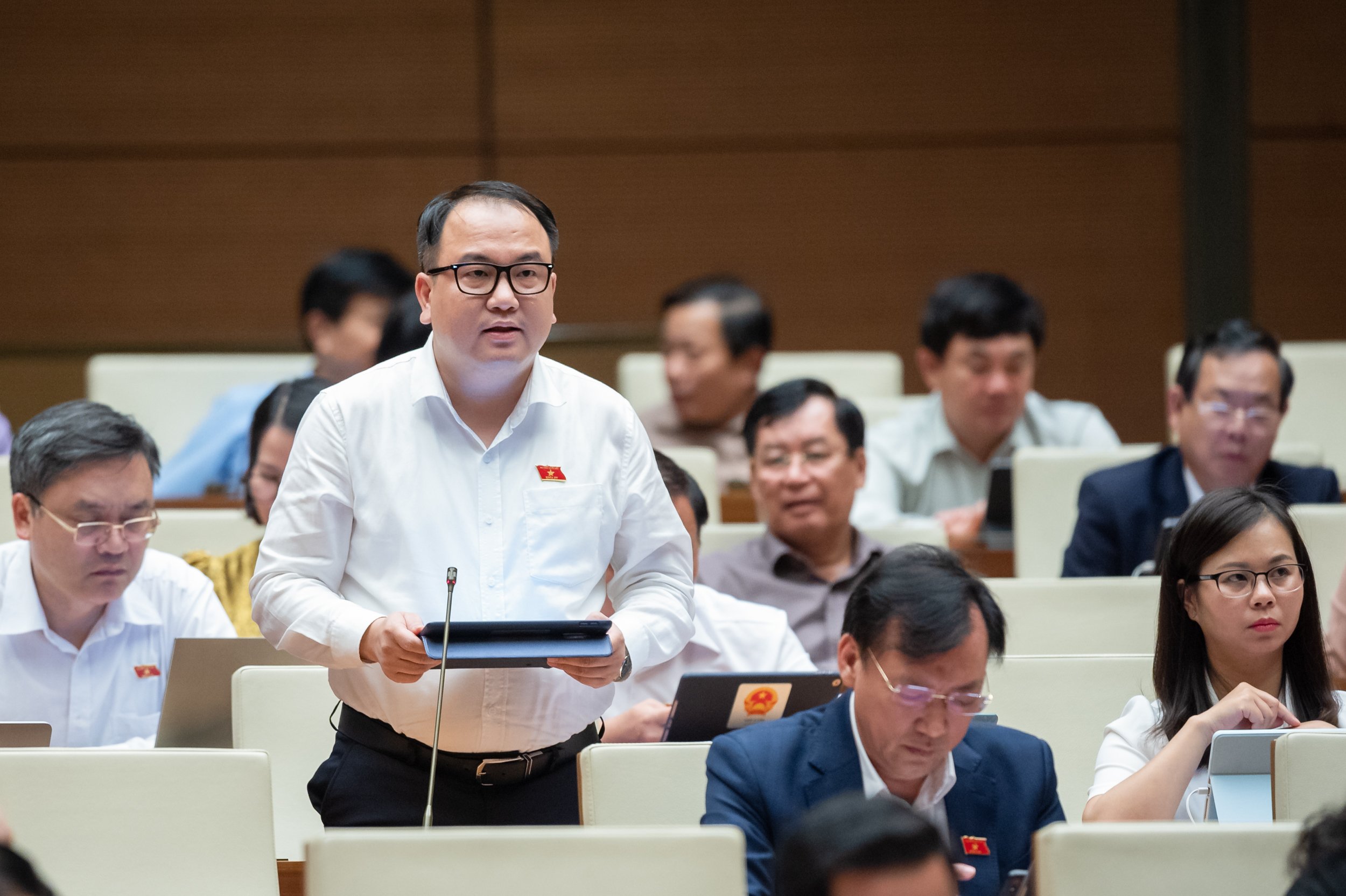
National Assembly Deputy Pham Trong Nghia.
Clause 3, Clause 4, Article 3 of the draft law defines the principle of widespread, public, and transparent use of archival documents. However, the draft only stops at some provisions related to the exploitation of archival documents. Delegates proposed to study the structure of a separate chapter on the exploitation and use of archival documents, including digitized documents.
Promoting the application of information technology, developing electronic storage to meet the requirements of administrative modernization, and developing e -Government towards digital Government is one of the new, fundamental policies of the draft law.
The draft has devoted Chapter IV to regulate Electronic Archives. However, the draft law's provisions on this content mainly focus on regulating the digitization of archival documents, converting digital archival documents to paper archival documents... without paying attention to the regulations on electronic archival operations.
Therefore, the delegate proposed to continue reviewing the draft content to institutionalize Resolution No. 52 of the Politburo on a number of policies and guidelines to proactively participate in the Fourth Industrial Revolution; promote digital transformation of archival activities, meeting the requirements of building digital archives. On that basis, the delegate proposed to continue researching and perfecting specific regulations on electronic archiving operations in Chapter IV of the draft law.
Delegate Ta Dinh Thi (Hanoi delegation) emphasized that archiving is one of the important issues, archival documents are precious assets, passed down between generations, authentically reflecting traditional cultural and historical values, even reflecting the level of development and civilization of a country and nation.
Mr. Thi said that digital transformation in the field of archives is a change in working methods, transferring state management of archives activities to the digital environment, based on data. However, currently, the implementation of digital transformation is facing limitations in terms of awareness, human resources, funding, infrastructure, and legal framework.
Therefore, the delegate stated that the provisions of the law must overcome these shortcomings. Specifically, there should be regulations on databases, digital archives, archival activities carried out in the electronic environment, and the application of new technologies of the 4.0 revolution to archival activities.
Ensure consistency, no overlap
Delegate Tran Thi Hoa Ry (Bac Lieu delegation) expressed agreement with the necessity of amending the Law on Archives mentioned in the Government's Submission.
Ms. Ry assessed that many contents in the draft Law have institutionalized, viewpoints and policies of the Party and State on innovation of archiving work in new conditions, focusing on overcoming shortcomings and obstacles in the practical implementation of the law. At the same time, enhancing the application of information technology, in line with the policy on digital government and digital society.
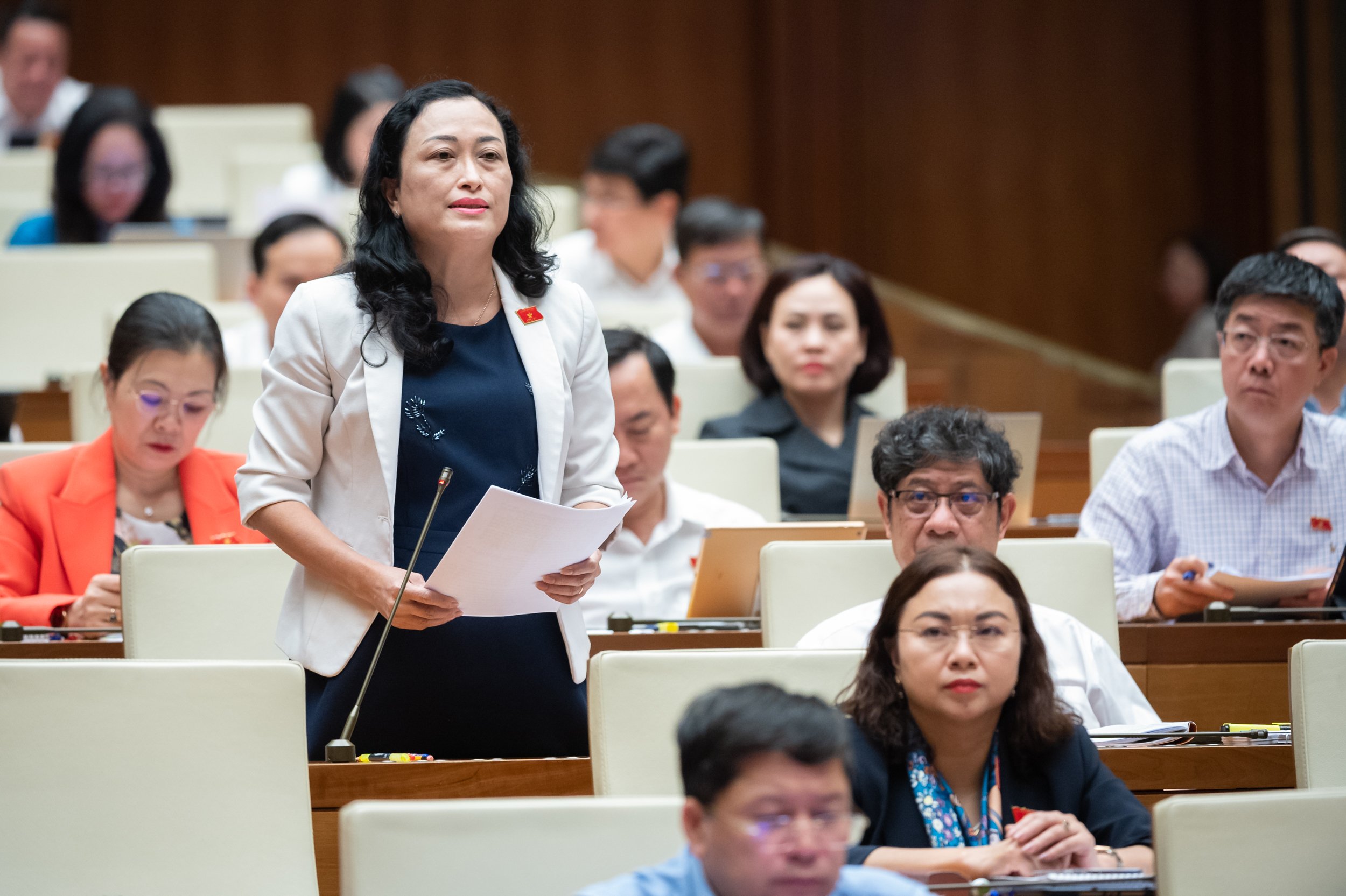
National Assembly Delegate Tran Thi Hoa Ry.
Delegate Dieu Huynh Sang (Binh Phuoc delegation) commented that amending the Law on Archives is necessary to institutionalize the Party's guidelines and policies, ensure the consistency and unity of the legal system, promptly overcome shortcomings and limitations in current practice of archiving work, and meet the requirements of national digital transformation and e-Government construction.
“With the goal of developing private archives, the State has policies to recognize, respect, protect, and ensure ownership and intellectual property rights for private archives, create a legal corridor and favorable conditions for organizations and individuals to participate in archival services, and promote the socialization of archival activities.
The draft Law also stipulates the value of private archives, the responsibility of the state, the rights and obligations of owners in managing and using private archives, the establishment, reorganization and dissolution of private archives organizations," said Ms. Sang.
Explaining the issue of storing electronic and digital documents, Minister of Home Affairs Pham Thi Thanh Tra said that this is new content designed into a separate chapter with the aim of building e-Government, digital Government, e-government and digital society, digital citizens.
Ms. Tra affirmed that in the process of drafting the law, the Drafting Committee tried to ensure consistency and unity with specialized laws on information technology, electronic transactions, network security, and protection of state secrets to meet the requirements of connecting and sharing data and information on archival documents.
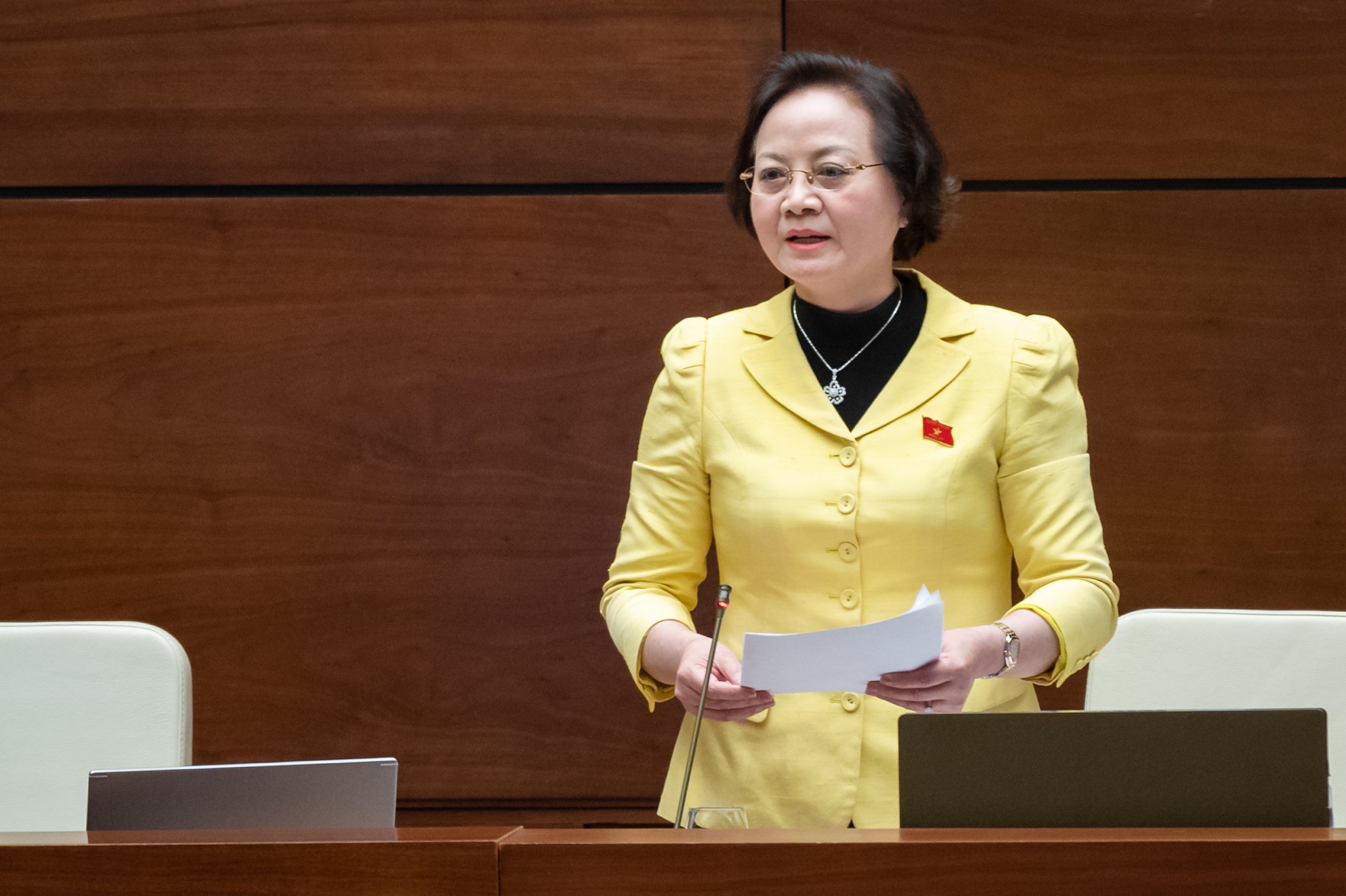
Minister of Home Affairs Pham Thi Thanh Tra.
"The Ministry will absorb the issue of electronic and digital storage and must be associated with digital transformation to further improve it, including stipulating a roadmap to ensure resources and arrange conditions to implement this content," said Ms. Tra.
According to the Minister, archives are valuable documents, diverse and rich information resources, including many valuable and rare documents of the nation and cultural heritage of the Vietnamese people.
Therefore, the amendment of the law closely follows the principles of fundamental and comprehensive amendments in the spirit and policies of the Party regarding the field of archives, both inheriting and supplementing and comprehensively developing current laws, ensuring compliance with international practices and ensuring consistency and non-overlapping with the current legal system.
The Minister emphasized that the core issue of archives is to preserve and store, promote the role and valuable mission of archival documents. This is an important goal and mission of archival documents, serving the cause of building and protecting the Fatherland, developing Vietnamese culture and people and also to strongly promote socialization in historical fields .
Source



![[Photo] General Secretary To Lam attends the 80th Anniversary of the Cultural Sector's Traditional Day](https://vstatic.vietnam.vn/vietnam/resource/IMAGE/2025/8/23/7a88e6b58502490aa153adf8f0eec2b2)



![[Photo] Prime Minister Pham Minh Chinh chairs the meeting of the Government Party Committee Standing Committee](https://vstatic.vietnam.vn/vietnam/resource/IMAGE/2025/8/23/8e94aa3d26424d1ab1528c3e4bbacc45)

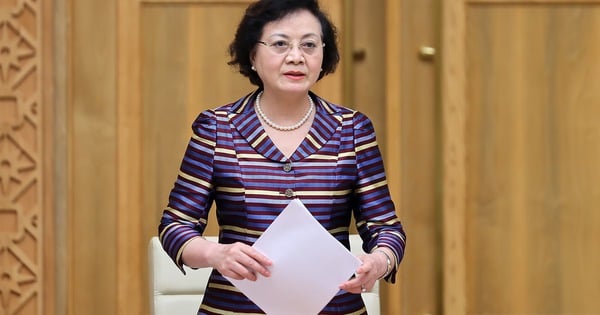

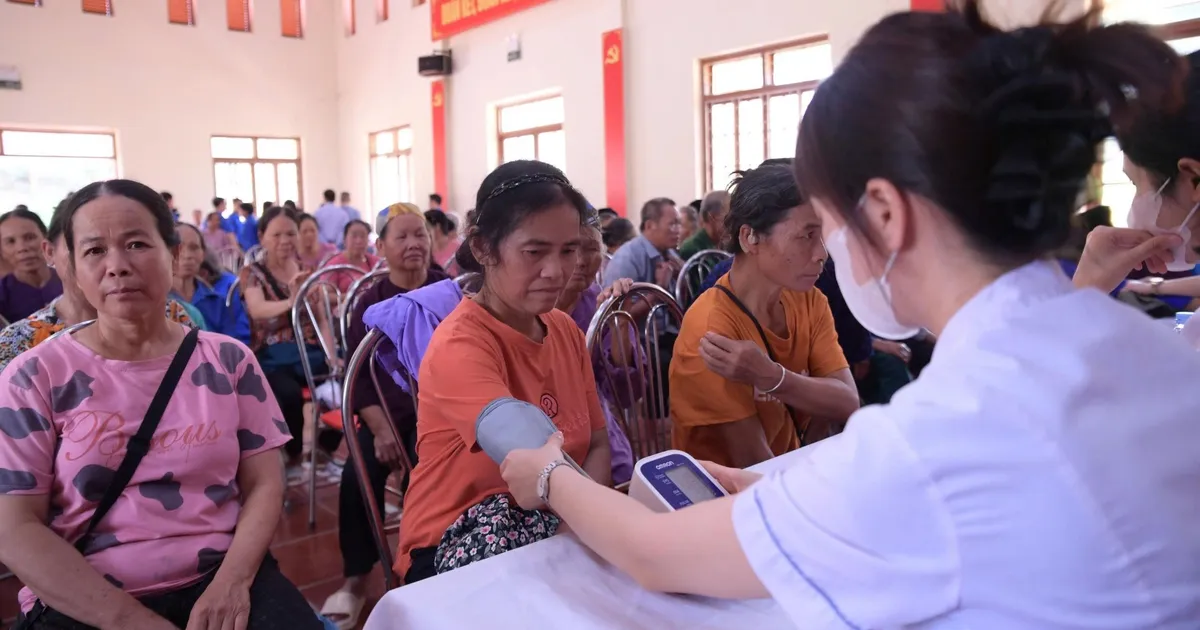



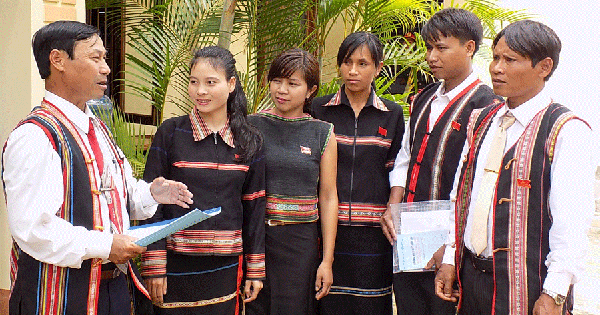


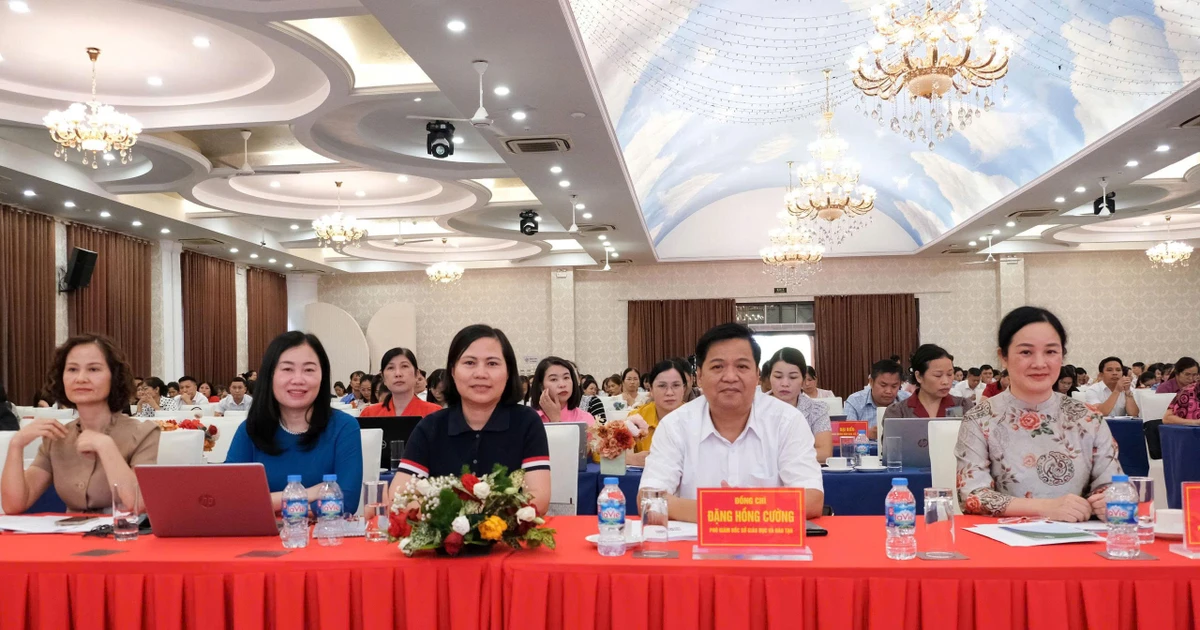































































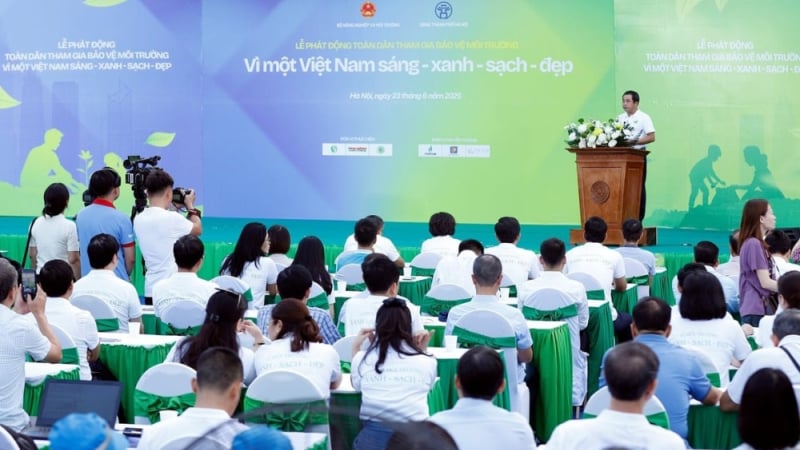

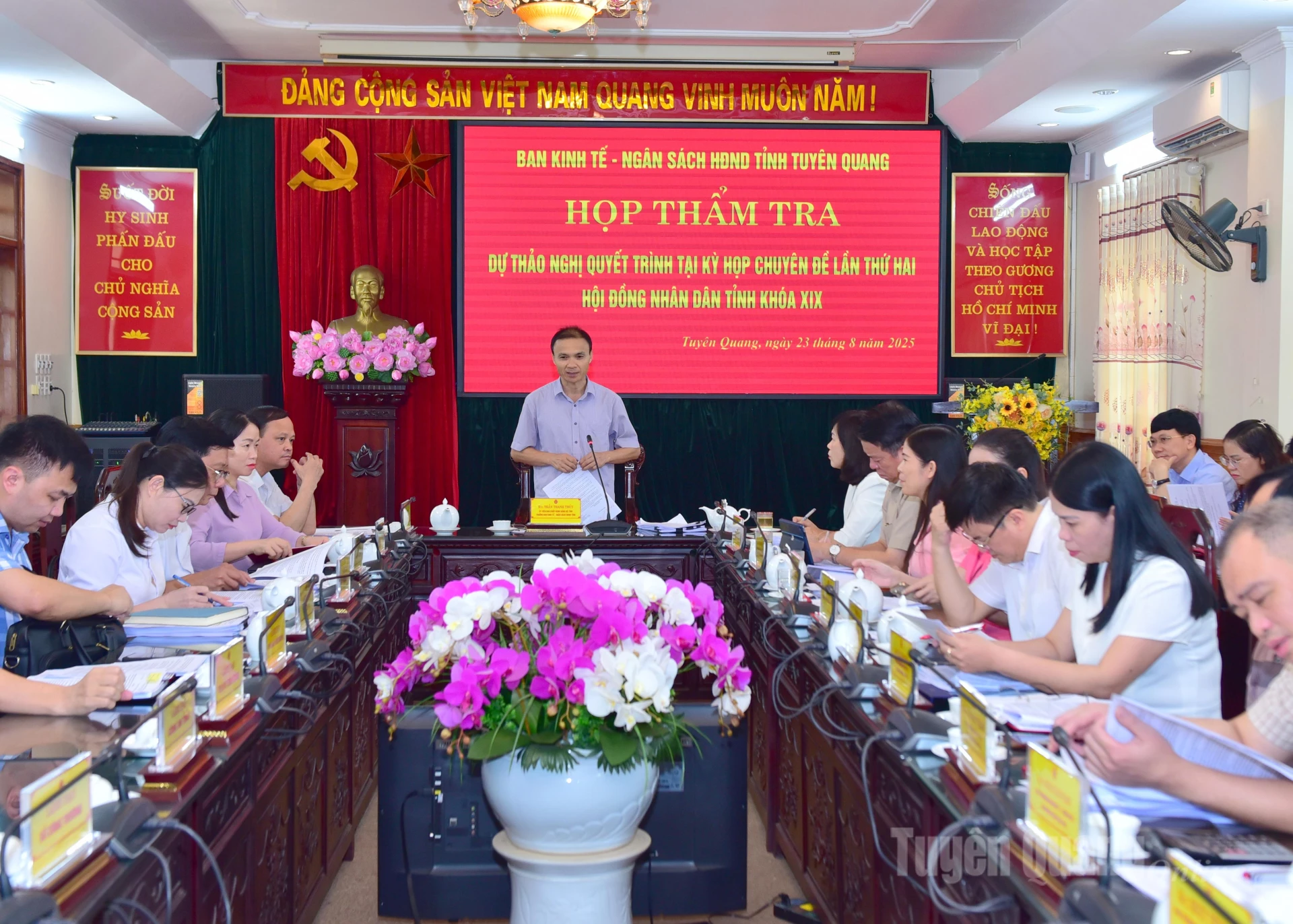




















Comment (0)